(NLDO) - Last year, the fossil of a 15-meter-long snake monster caused a shock when it appeared in India, usurping the throne of the giant python Titanoboa.
Snakes and pythons are still extremely terrifying creatures to all species to this day. And fortunately, the most terrible representatives of this lineage are extinct.
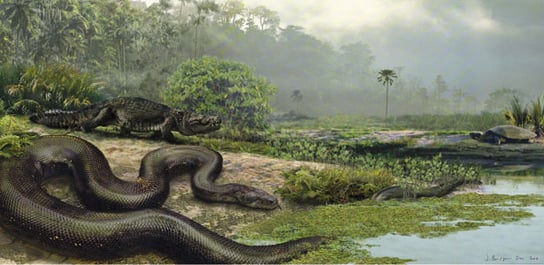
Graphic image depicting the Titanoboa cerrejonensis snake monster - Photo: SCITECH DAILY
1. The world's largest "monster snake" Vasuki indicus
In 2024, Indian paleontologists announced a remarkable discovery at the Panandhro lignite mine in the Kutch salt marsh desert in Gujarat state: a "monster snake" that could have been up to 15 meters long.
It is named Vasuki Indicus, after the divine snake wrapped around the neck of the Hindu god Shiva - the supreme god of destruction and creation.
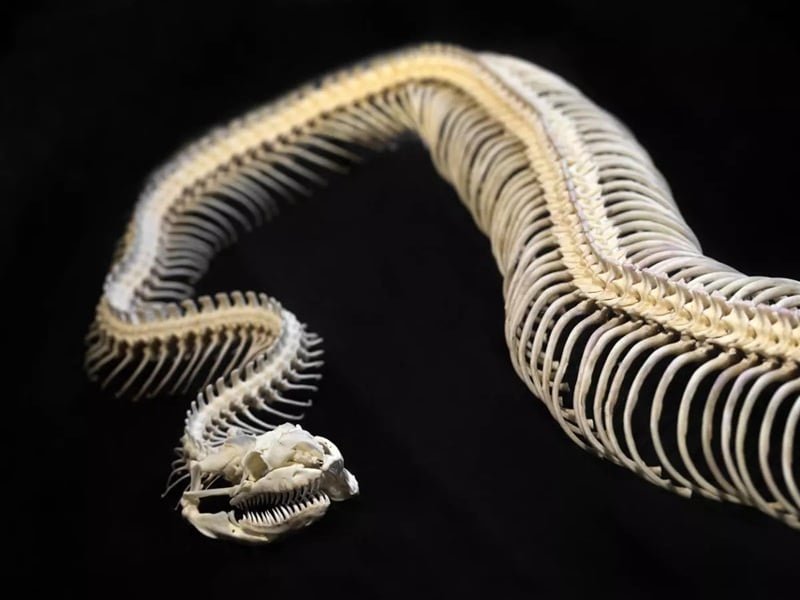
3D reconstruction of the skeleton of the snake monster Vasuki indicus - Photo: INDIAN INSTITUTE OF TECHNOLOGY ROORKEE
The fearsome snake has also been identified as a member of the Madtsoiidae, a lineage of extinct giant snakes and pythons that originated on the southern supercontinent Gondwana 100 million years ago.
India was originally part of Gondwana. During the final continental repartition, this subcontinent drifted north to join part of the northern supercontinent Laurasia, forming present-day Asia.
2. Brazilian 4-legged snake
The creature, named Tetrapodophis plentyctus, was unearthed in Brazil a few years before the Indian "divine snake." Its genus name - Tetrapodophis - means "four-legged snake" in Greek, according to Science.
Meanwhile, the species name plentyctus, derived from Latin, means "embrace" and refers to the creature's flexibility and ability to wrap itself tightly around its prey.
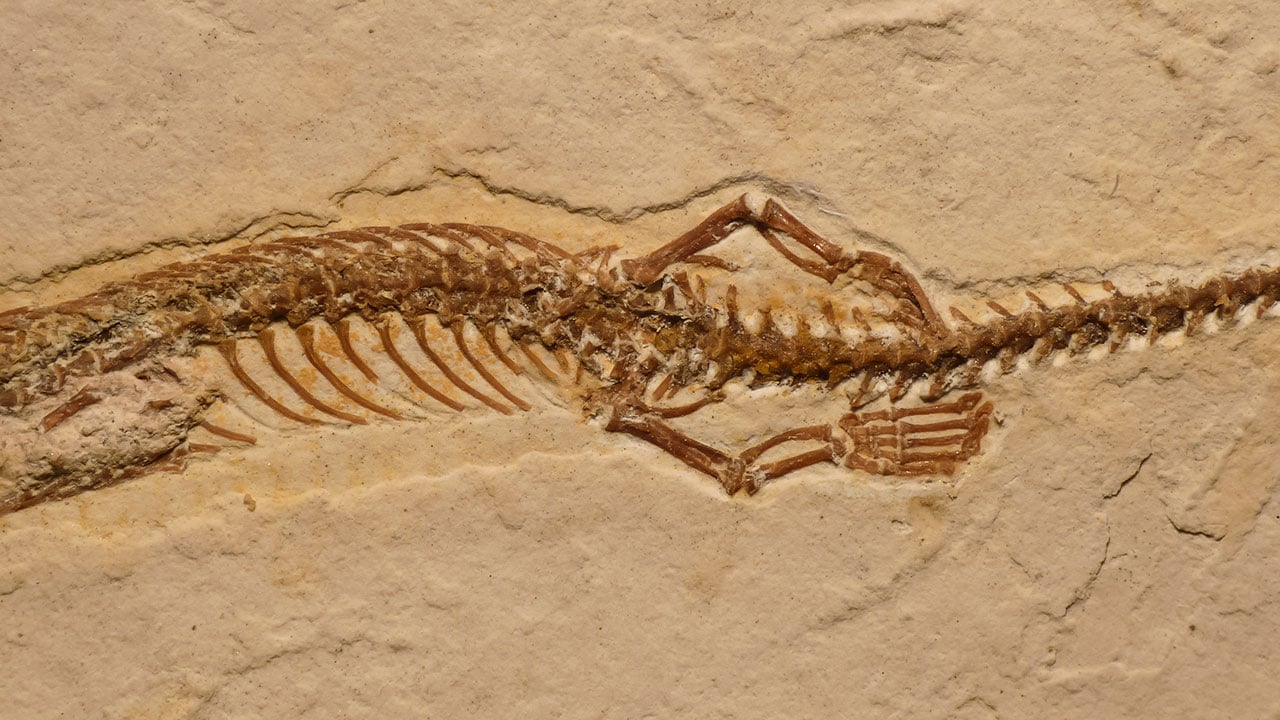
The strange skeleton of a four-legged snake - Photo: SCIENCE
This snake is only 20cm long but what makes it special is that it is 120 million years old.
This also makes it one of the oldest known snake species.
Meanwhile, the four small limbs represent an unfinished evolution from a four-legged reptilian ancestor.
In addition to the tiny limbs, the specimen had a skull the size of a human fingernail, 160 spinal vertebrae and 112 tail vertebrae.
3. Giant python Titanoboa cerrejonensis
Titanoboa cerrejonensis was the king of the snake world when its description was published in 2012.
It was about 12 m long when alive and weighed about 1 ton, discovered at the Cerrejón fossil deposit in the tropical lowlands of northern Colombia, 96 km off the Caribbean coast.
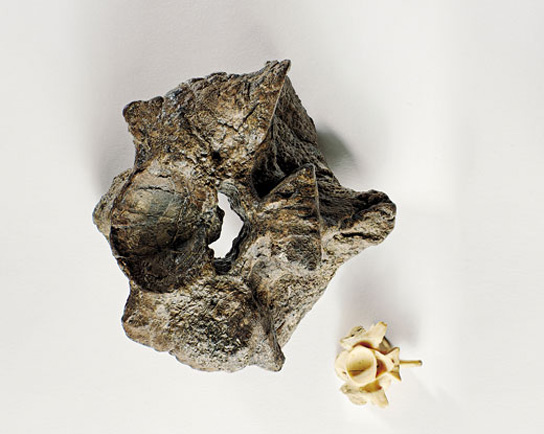
The vertebrae of Titanoboa cerrejonensis are very large compared to the vertebrae of modern Anaconda - Photo: SCITECH DAILY
This snake monster lived about 58-60 million years ago, and its favorite diet was crocodiles, fish and turtles.
Reptiles could grow larger in warmer climates, allowing cold-blooded animals like Titanoboa to maintain the metabolic rates necessary to sustain their enormous mass.
Source: https://nld.com.vn/kinh-hai-3-quai-xa-da-tuyet-chung-hang-trieu-nam-truoc-196250127085148758.htm




![[Photo] Ready for the top competitions of Vietnamese table tennis](https://vphoto.vietnam.vn/thumb/1200x675/vietnam/resource/IMAGE/2025/5/18/9c547c497c5a4ade8f98c8e7d44f5a41)
![[Photo] Many young people patiently lined up under the hot sun to receive a special supplement from Nhan Dan Newspaper.](https://vphoto.vietnam.vn/thumb/1200x675/vietnam/resource/IMAGE/2025/5/18/6f19d322f9364f0ebb6fbfe9377842d3)
![[Photo] Party and State leaders attend the special art program "You are Ho Chi Minh"](https://vphoto.vietnam.vn/thumb/1200x675/vietnam/resource/IMAGE/2025/5/18/6895913f94fd4c51aa4564ab14c3f250)


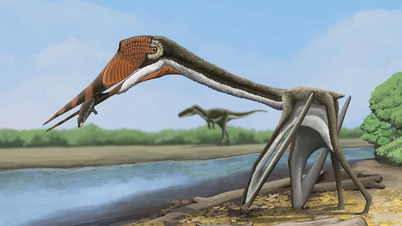


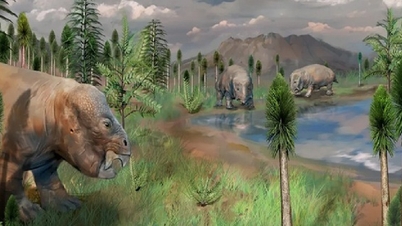
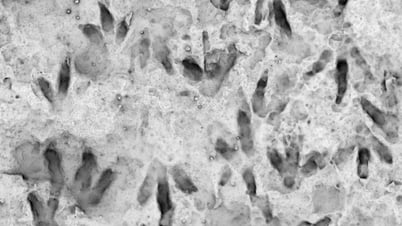




















































































Comment (0)